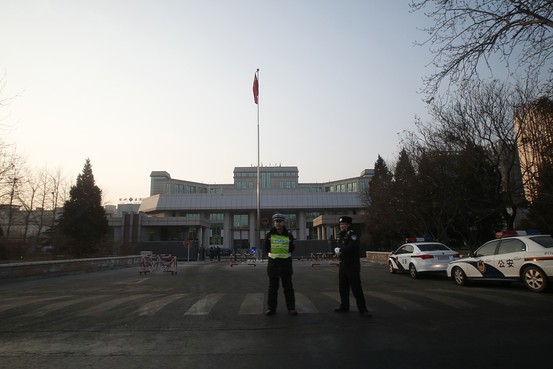Home -> News -> Media -> Resurrecting One of China’s Most Embarrassing Court Decisions
Resurrecting One of China’s Most Embarrassing Court Decisions

In 1994, Zhang Aiqing fought with her husband and disappeared from her home in rural Hubei province.
Several months later, the bloated body of a woman was found floating in a pond not far from Madian Village. She Xianglin, the missing woman’s husband, was arrested and convicted of murdering his wife. He served 11 years in prison for the deed – until the day the supposed murder victim showed up, wondering what all the fuss was about.
“Back from the Dead: A Landmark Ruling of Wrongful Conviction in China,” is law professor He Jiahong’s account of one of modern China’s most dramatic cases of wrongful conviction. Recently translated into English and available through Penguin China as an e-book, the story tells a harrowing story of coerced confessions, the misidentification of a body, contradictory statements, almost nonexistent evidence and an overall miscarriage of justice.
The book is well-timed: China has recently embarked on a judicial reform push, driven in part by concern over wrongful convictions. Shen Yong, executive vice-president of the Supreme People’s Court, warned last year that wrongful convictions represented an “unprecedented challenge to the People’s Courts” (in Chinese), and in November the Supreme People’s Court banned confessions acquired through torture in an effort to reduce the likelihood of wrongful convictions.
In its annual work report, delivered Monday (in Chinese), the Supreme People’s Court said 7,415 verdicts had been overturned last year, down from 11,000 in 2012 (in Chinese).
A novelist and law professor at Remnin University, He Jiahong has spent much of his career studying and attempting to publicize miscarriages of justice in China.
“We cannot eradicate all the wrongful convictions, but we have to try to prevent them and we should have a better system for discovering that, and to give remedy to those involved,” said Mr. He, a slight 60-year-old, who wore a jacket with a mandarin collar during an interview before a recent book talk in Beijing.
In the case of She Xianglin, China’s criminal justice system was still recovering from the Cultural Revolution, Mr. He says, where there was “no law, no lawyers, even no prosecutors.”
Mr. She did fight with his wife, and she did disappear, according to Mr. He. A body, badly decomposed, was discovered in a nearby pond. But when the family of Zhang Ailing (a pseudonym) was asked to identify her, they said they didn’t recognize the clothing she was wearing. Investigators told her family that there were methods such as cranial matching or DNA testing to identify a body, but that kind of testing was costly. “If the family really wanted such confirmation, they would have to foot the bill themselves,” Mr. He writes. They were poor, they said. They agreed that the body was Ms. Zhang’s.
- .U.S. Treasury looks to hold more cash to deal with future crises
- .Yum, McDonald's in Shanghai food safety investigation
- .Yellen defends loose Fed policy, says job market still too weak
- .Carl Icahn says 'time to be cautious' on U.S. stocks
- .Samsung Electronics says second quarter profit likely down 24.5 percent; worst in two years
- .U.S. jobs data seen reinforcing strong growth outlook
- .Asia stocks up on buoyant Wall Street, oil near highs

